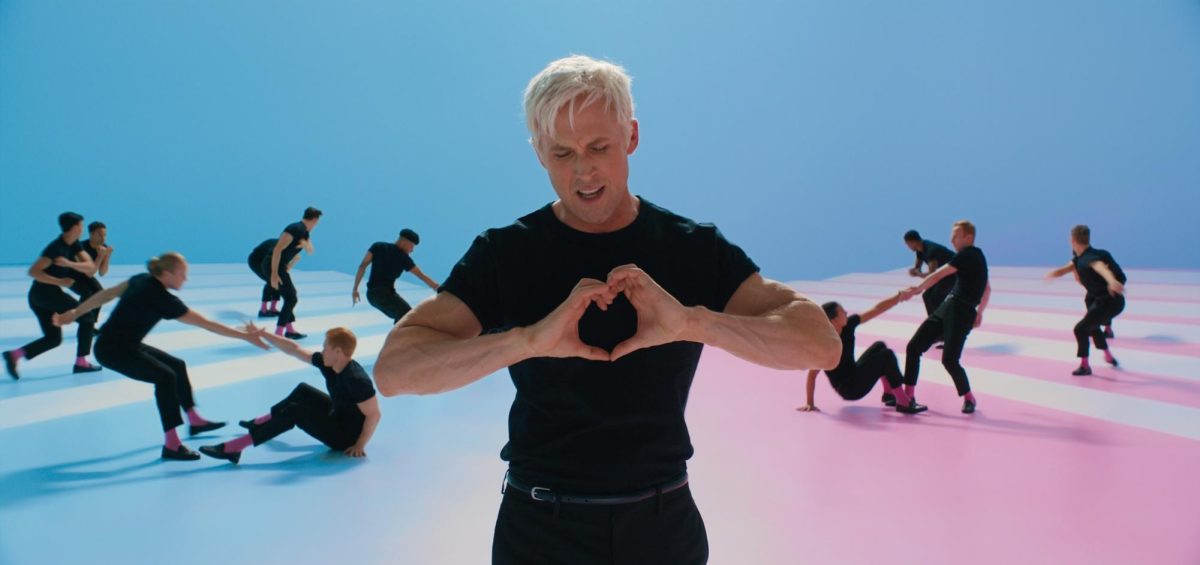The length of The Oscars has been a long-standing joke between hosts and audiences. With the show usually lasting around three and a half hours, it shows a significant viewership drop in the latter half of the ceremony. Instead of perpetuating the everlasting hope that the show will run short—or even on schedule—the 96th Academy Awards moved up an hour. The 2024 time shift was an attempt to keep the show from running too late for East Coast viewers.
On March 10, 2024, the Dolby Theatre in Hollywood, California, hosted hundreds of the biggest names in film. At 4 p.m. Pacific Standard Time, all sat promptly in their seats.
Jimmy Kimmel returned for his fourth time hosting. While Kimmel certainly has a talent for guiding a smoothly run show—even keeping his cool during the 2017 Best Picture mixup—his self-deprecating style is getting old. Following a challenging year marked by the lengthy Writers and Actors Guild strikes, Hollywood’s workers deserved a celebratory night. Instead, they met a host who seemed tired of the show before it even began.
Where the show lacked in originality, it made up for in the touching speeches honoring a deep love of cinema brought to the stage by the night’s winners. The Oscars can often be chopped up into just another award show, but truthfully, they are momentous in the lives of many. Seeing the emotional impact the award has on its recipients brings the show to a new light.
In a newer, hopefully continuing addition to the show, each acting category was presented by five previous winners who all took a moment to personally honor one of this year’s nominees. Moments that spoke not only to the quality of their performances but the people they are outside of their work, calling attention to a sense of community on a night of competition was one of the better choices the Oscars has made in years.
Starting the show off with a bang, first-time nominee Da’vine Joy Randolph gave a tearful speech that set the tone for the rest of the evening upon her Best Actress in a Supporting Role win for her performance as Mary in “The Holdovers.”
“For so long I’ve always wanted to be different, and now I realize I just need to be myself and I thank you for seeing me,” she began before recognizing her acting coach Ron Van Lieu. “When I was the only Black girl in class, you saw me and told me I was enough. When I told you, ‘I don’t see myself,’ you said, ‘That’s fine. We’re going to forge our own path.’”
The night awarded Nolan his first and second Oscars after eight nominations over the last two decades.
Christopher Nolan’s “Oppenheimer” made the sweep its preceding awards season promised and took home seven awards, including four of the big five: Best Picture, Best Actor, Best Supporting Actor and Best Director.
“To the Academy — movies are just a little bit over 100 years old. I mean imagine being there just a hundred years into painting or theatre,” he said during his acceptance speech for Best Director. “We don’t know where this incredible journey is going from here. But to know that you think I’m a meaningful part of it means the world to me.”
“The Zone of Interest” writer and director Jonathan Glazer’s acceptance speech for Best International Feature Film has garnered a lot of controversy — it was removed from The Oscar’s official YouTube account and received an open letter of denouncement co-signed by over 1,000 Jewish creatives in the film industry.
“Our film shows where dehumanization leads, at its worst. It shaped all of our past and present,” Glazer spoke on the topic of the Israel and Palestine conflict. “Right now we stand here as men who refute their Jewishness and the Holocaust being hijacked by an occupation, which has led to conflict for so many innocent people.”
Despite the backlash the speech received in the days following, the live audience’s response was one of support, and the room was filled with applause.
With a season packed full of so many outstanding films, quite a few were left without the recognition they deserved.
To the surprise of many, Martin Scorsese’s film “Killers of the Flower Moon” walked away with zero wins out of its ten nominations; a disappointing defeat for an incredible movie.
Although Lily Gladstone and Emma Stone were in a close race, the night ended with Emma Stone winning Best Actress in a Leading Role for “Poor Things,” her second win and fifth nomination.
Some of the biggest moments of the night were the Best Original Song performances—most notably Ryan Gosling’s extravagant “I’m Just Ken.” In a choreographed dance that included the backup of 62 Kens and special guest appearances by Slash and Wolfgang Van Halen, Gosling surely made Oscars history. Though “What Was I Made For” took home the award in the end, Gosling indeed made Oscars history.
The night’s final award was presented by a rather quirky Al Pacino, celebrating the 50th anniversary of “The Godfather Part II.” In a moment that quickly made headlines, Pacino’s announcement for Best Picture, “My eyes see Oppenheimer,” left audiences briefly confused, taking a minute to fully grasp who had won.
Overall, The Oscars had a great show and left room for hope that the producers are finally starting to shape the show into one more entertaining for at-home audiences. Eager to see what lies ahead in the upcoming festival circuit, The Academy has solid ground to stand on in preparing for next year’s ceremony.

















































































